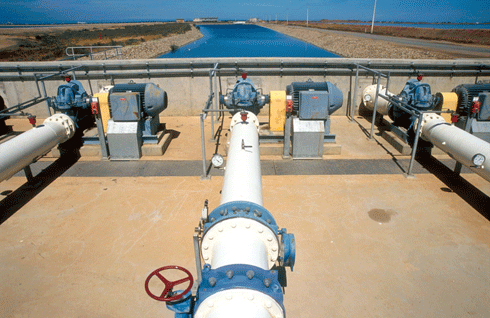
|
Published: 13 February 2012
Global report forecasts water price rises
Leading global business group Deloitte Touche Tohmatsu Limited (DTTL) has launched a report concluding that more realistic water pricing will play an important role in how people, industry and nations better manage their water usage over the coming year.
The Water Tight 2012 report examines how major global trends, such as population growth, increasing economic development, and urbanisation, coupled with the changes in climate patterns, underscore the importance of effective public policy and private sector water stewardship in managing water resources.
The growing demand for water highlights the issues of water conservation and efficient use, particularly as governments, utilities, and the private sector come under increasing pressure to function as stewards of this finite resource.
'There is a compelling case for utilities either to increase water prices or create a better pricing system that addresses scarcity issues, allows them to invest in the replacement of ageing infrastructure, and provides them with a satisfactory financial return,' says James Leigh, Global Leader for Water, DTTL.
'Increasing water prices, however, is a difficult political decision, as domestic water usage is considered a basic human right. As such, raising awareness of water-related issues and educating the public about the necessity of more effective water pricing is crucial.'
Late in 2011, the Australian arm of Deloitte partnered with the Australian Water Association (AWA) to release an Australian State of the Water Sector report, which documented the responses of water industry CEOs to an earlier water sector survey.
AWA CEO, Tom Mollenkopf, said the insights gathered from Australia’s water industry leaders would help reinforce the need to maintain water policy and management issues on the national agenda.
‘Even in times like these, when the dam levels are up, it is important that we continue to raise the profile of key national water issues. This survey will help provide evidence to support water policy decisions for the future’.
While water leaders agreed that sustainability was a key issue, many believed it was not being handled adequately and that it needed to be more fully embraced and integrated with other urban services such as transport, energy and urban design.
Almost two thirds of the survey respondents said co-ordinating across jurisdictions and a lack of leadership were the major barriers to creating more ‘water-sensitive’ cities, with 53 per cent saying cost was also a factor. Another threat facing the industry is an engineering skills shortage, linked to competition from the resources sector.
Mr Mollenkopf notes that one of the views to emerge in the CEO interviews was that, unlike other countries, Australia doesn’t have a replacement mindset when it comes to asset management ‘but looks to other solutions that would extend the life of ageing assets’.
‘There appeared to be a view from some CEOs that effective use of technology could enable authorities to extend the life of ageing assets, by allowing them to accurately predict asset failure, understand what’s going on beneath the surface, and monitor the condition of assets more accurately, particularly the critical assets.’
Source: Deloitte




